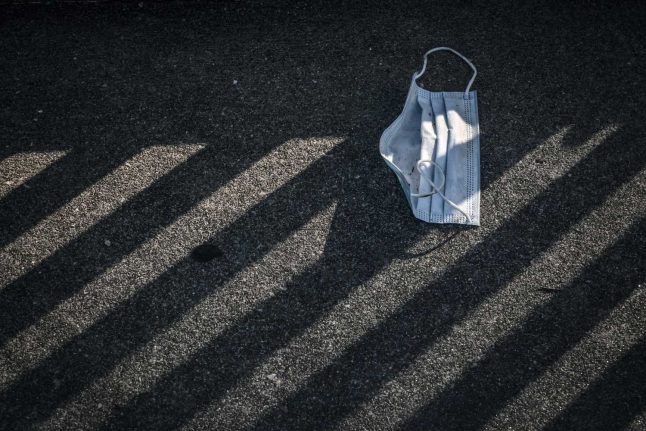The masks, which were finally produced in Switzerland after a long delay, now require further changes and amendments if they are to be allowed to be sold on the market.
The head of the laboratory at Tüv Nord, Dirk Grenschen, told Swiss broadcaster SRF that the masks were rejected for a technical reason and required improvements if they were to receive certification.
No further information was provided by the certification body as to why the masks were not up to standard.
Masks were made compulsory on public transport and in shops in some cantons on July 6th.
READ: Everything you need to know about Switzerland's new compulsory mask requirement
Still no Swiss-made masks on the market
Forced to import masks and other protective equipment from abroad during the pandemic, production of the first Swiss-made coronavirus face masks started up in late May.
While the first completed masks rolled off the production line at the start of June, they are yet to leave the warehouse.
Hundreds of thousands of the devices are sitting on the shelves in a factory in the eastern Swiss town of Flawil. How long they will remain unused is yet unknown and will depend on how quickly the defects can be addressed.
READ: Swiss researchers develop breathable, transparent face masks

A discarded mask on a Swiss street. Photo: FABRICE COFFRINI / AFP
The masks are still being produced at a rate of around 64,000 per day – but there is no word yet on when they will become publicly available.
Marcel Odermatt from the Zurich Health Directorate told Switzerland’s SRF media organisation that when the masks receive their final approval, demand for the devices would most likely have subsided – if it hasn’t already.
“Fortunately, the situation in the canton of Zurich, as in all of Switzerland, has eased considerably,” he said. “The production of masks in Switzerland is no longer as important as it was a few months ago.”
Less reliance on Switzerland’s neighbours
Production of Swiss-made coronavirus masks finally began in May, with the first Swiss-made masks being produced in June.
At a cost of 1.6 million francs, Cantonal officials in Zurich bought two machines used to make the masks from China in mid-April.
The delivery of the machines was delayed, while production was also pushed back due to technical difficulties.
The pandemic laid bare Switzerland’s reliance on its neighbours, particularly when it comes to manufacturing.
Switzerland relies heavily on importing medical equipment like masks and other personal protective equipment (PPE) and as such has been at the mercy of international markets when it comes to securing the devices.
With masks scarce all over the world during the peak of the pandemic, Swiss authorities were forced to pay many times over usual market value in order to secure the devices.
Switzerland has also been at the mercy of neighbouring countries, with some countries stopping truckloads of protective equipment and hand sanitiser in order to keep it in their own countries.



 Please whitelist us to continue reading.
Please whitelist us to continue reading.
Member comments